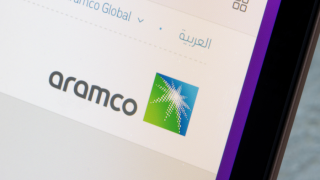What have been the highlights and key developments in the Middle East for Tata Communications in the past year?
During the past year, Tata Communications has further expanded its presence and engaged in additional strategic partnerships in the region focussing on new value added services as well as a few important verticals such as media and entertainment, managed security, managed hosting, aviation and government. These engagements have derived major wins for Tata Communications and its partners in their respective markets.
What makes the Middle East an attractive market for Tata Communications?
Tata Communications has had a presence in the Middle East for more than 2 decades and has continually expanded its presence and strengthened its services and solutions portfolio in the region. Some of the countries in this region represent the fastest growing emerging markets in the world.
We thrive in high-growth markets and have had tremendous success in supporting the growth of our partners and customers in markets that are changing rapidly. Partners and customers in the Middle East choose Tata Communications because we have a foundation and infrastructure matched with a truly unique service portfolio as well as a strong team in the region. That makes us a provider they can trust and rely on as they expand regionally or globally.
What are some of the challenges in the Middle Eastern market?
Some markets are not yet fully deregulated and this limits the rollout of new services like cloud, for example. Pricing in some countries continues to be higher than those in developed markets. Connectivity has become so embedded in our lives that any interruption, even for a short period, can have catastrophic effects. Hence, having multiple international cable systems and creating full diversity (cable-wise and routing-wise) is a must for all service providers in the region to ensure service continuity.
Tata Communications’ extensive global internet backbone has diverse eastward and westward paths which enables us to maintain services during unforeseen downtime periods due to submarine cable cuts. We are proud of our global operations and engineering team who work around the clock to ensure our network is operating and delivering the highest level of QoS and the highest availability using the latest technology.
What are your strategic priorities for the Middle East in 2016 and what announcements can we expect from Tata Communications in the region this year?
We see potential growth and opportunities in the region in 2016 through our strategic partners for opex model managed services in various sectors and verticals. We continue to focus and expand our coverage for our partner enablement initiatives. One of our key focus areas will be solution selling and transformation services.
As far as announcements, we will have some exciting developments around our media ecosystem and partner enablement initiatives concluded this year. I can’t go into specifics here, so you’ll have to keep an eye out for some of these big stories.
What increasing demand are you experiencing from service providers in the region and how does Tata Communications aim to meet that?
Enterprises, service providers and end users in the region want to accelerate their access to new applications and services and this is driving the transformation of how they connect and do business. They are diverse and unique but united by the common need for new connectivity, new communications services and the ability to collaborate locally, regionally and across the globe.
At Tata Communications, we are using our local presence, emerging market experience, and global portfolio of managed services to support this growth and transformation. Our business supports the success of customers in rapidly growing markets and enables them to maximize their potential with global reach and on-the-ground expertise.
We offer our partners and customers growth without complexity, new capabilities without capex-intensive investments, and the power to transform their businesses with the support of a globally trusted provider.
What are the major trends in the Middle Eastern market and how is Tata Communications planning to capitalise on those?
Overall, the telecommunications sector in the Middle East still provides better growth and value creation prospects than other regions. However, service providers will really need to accelerate their efforts to monetize existing data services and drive growth from new services and solutions.
Some of the big trends I believe will shape the market are the development of smart apps in the region to create smart cities. This along with ecommerce advanced mobility services and cloud services will represent some of the major trends in the region.
Cloud services has been a buzzword for several years in the region. However, recently we have seen a considerable migration from on premise services into the cloud using trusted partners and service providers.




